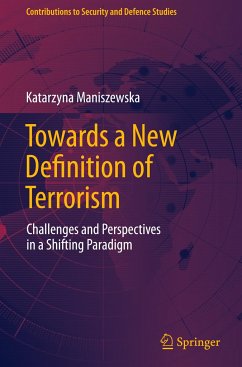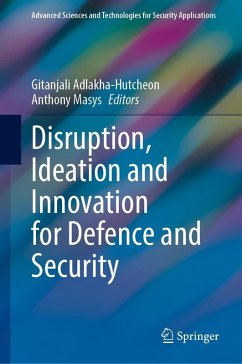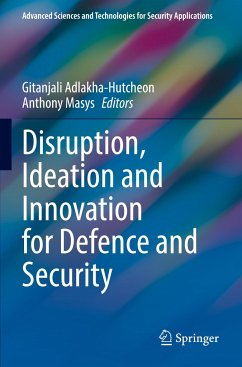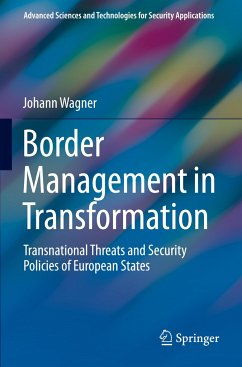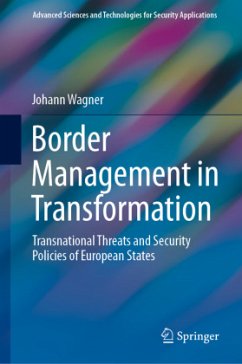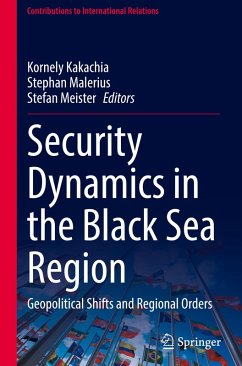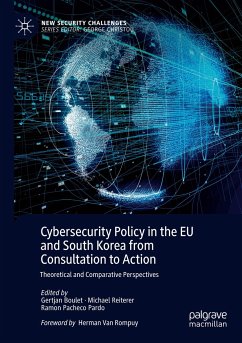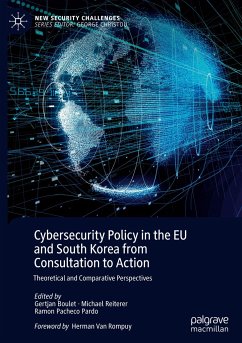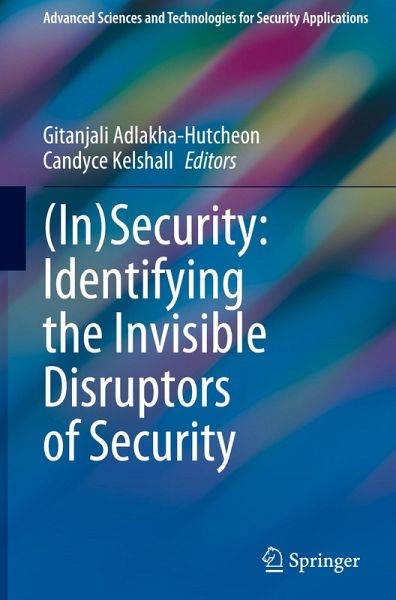
(In)Security: Identifying the Invisible Disruptors of Security

PAYBACK Punkte
54 °P sammeln!
What does it take to disrupt security? How does one disrupt the invisibility of insecurity? How does one make the invisible factors that define and impact security visible?For a start, by giving voice to the unheard and the marginalized, engaging non-traditional understandings of security that might bring to light the cracks in our current security infrastructure and expose the insecurities that are hidden in plain sight. These voices include generational, geographic, cultural, ethnic, and gender-based perspectives of insecurity which are ignored, or simply cannot be heard, by traditional noti...
What does it take to disrupt security? How does one disrupt the invisibility of insecurity? How does one make the invisible factors that define and impact security visible?
For a start, by giving voice to the unheard and the marginalized, engaging non-traditional understandings of security that might bring to light the cracks in our current security infrastructure and expose the insecurities that are hidden in plain sight. These voices include generational, geographic, cultural, ethnic, and gender-based perspectives of insecurity which are ignored, or simply cannot be heard, by traditional notions of security. Presently there is a lack of understanding of the language of nuanced hate being whispered from the ground that inform civil discord. These call for new intrastate actions that need to be taken to make communities safer and building layers of protective resilience into the continuing existence of the state. Unresolved grievances lay the foundation for insecurity and instability for the future at a time when states need cohesiveness more than ever and there are significant invisible insecurities, external to the state, that need to be revealed. The tapestry of interrelationships that enable security within a state requires equity, access, and agency among communities. If we are to achieve this, we must learn to see the invisible, listen to the unheard, and move beyond our static conceptions of security. In so doing we build more resilient societies in the face of a dynamic threat environment and ensure the peaceful continued existence of states.
This book is a sounding board for positive disruption, a source for alternative theories, tools, and models to aid mitigation of the whispered threats and the soft violence which accompanies chauvinism of any one way of being. In this edited book the multiplicity of factors that impact security is explored through new lenses to glean insights, such that we are better equipped to prevent harmand protect our security.
For a start, by giving voice to the unheard and the marginalized, engaging non-traditional understandings of security that might bring to light the cracks in our current security infrastructure and expose the insecurities that are hidden in plain sight. These voices include generational, geographic, cultural, ethnic, and gender-based perspectives of insecurity which are ignored, or simply cannot be heard, by traditional notions of security. Presently there is a lack of understanding of the language of nuanced hate being whispered from the ground that inform civil discord. These call for new intrastate actions that need to be taken to make communities safer and building layers of protective resilience into the continuing existence of the state. Unresolved grievances lay the foundation for insecurity and instability for the future at a time when states need cohesiveness more than ever and there are significant invisible insecurities, external to the state, that need to be revealed. The tapestry of interrelationships that enable security within a state requires equity, access, and agency among communities. If we are to achieve this, we must learn to see the invisible, listen to the unheard, and move beyond our static conceptions of security. In so doing we build more resilient societies in the face of a dynamic threat environment and ensure the peaceful continued existence of states.
This book is a sounding board for positive disruption, a source for alternative theories, tools, and models to aid mitigation of the whispered threats and the soft violence which accompanies chauvinism of any one way of being. In this edited book the multiplicity of factors that impact security is explored through new lenses to glean insights, such that we are better equipped to prevent harmand protect our security.



